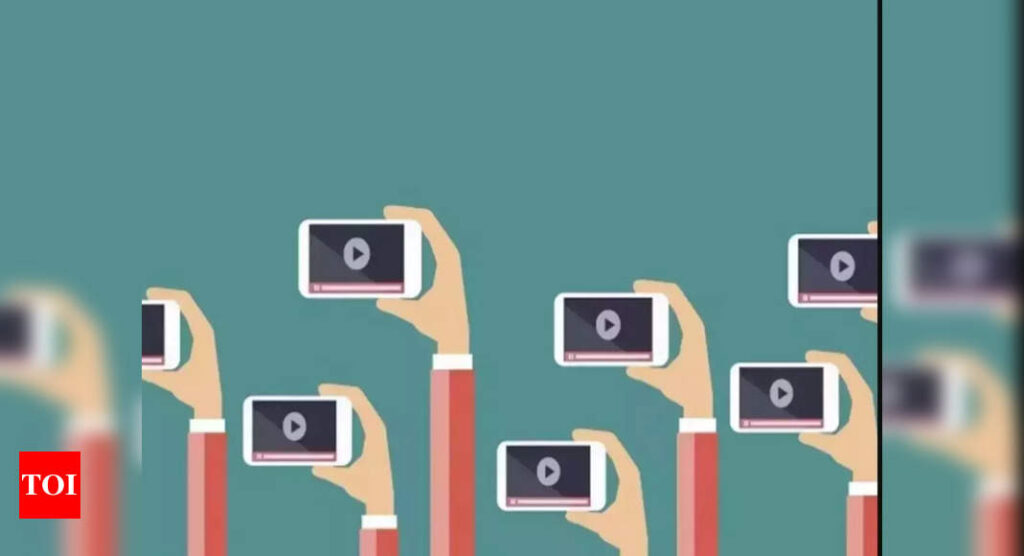[ad_1]
Fair-share fee payment by large over-the-top (OTT) players to telecom operators will enhance consumer experience with better quality networks without violating net neutrality principles, industry body Cellular Operators Association of India (COAI) has said in a statement. COAI represents telecom operators including Vodafone, Reliance Jio and Bharti Airtel etc. The company said that it is a misguided view that fair share charges on large traffic generating (LTG) OTTs will violate net neutrality principles. The COAI statement comes in response to Broadband India Forum’s claim that any mandate for OTT players to pay for network usage fees and the government’s intent to impose telecom licensing frameworks on OTTs, would lead to violation of the Net Neutrality principles and guidelines of 2016. BIF represents companies like Netflix, Amazon, Disney Hotstar and others.
The government in July, 2018 had approved the Telecom Regulatory Authority of India’s (TRAI) net neutrality recommendations, which bar service providers from discriminating against internet content and services by blocking, throttling or granting them higher speed access.
What COAI said in its statement
“Payment of fair share fee by Large Traffic Generating OTTs to TSPs will eventually enhance customer satisfaction, as end-users will benefit via better network quality and improved services,” COAI, Director General, SP Kochhar said in the statement.
Telecom operators have been demanding ‘same service same rules’ for OTT players that provide communication services like WhatsApp, Facebook Messenger, Google Meet, Telegram, etc.
Kochhar said that COAI has proposed providing exemptions to startups, MSMEs and small enterprises within the OTT ecosystem from payment of fair-share charge which not only establishes a supportive framework for nurturing startups, but also ensures that smaller players enjoy the advantages of improved network quality.
“The Indian telcos are bound by their license conditions to ensure net neutrality, and will continue to do so. COAI affirms that the proposed fair share charge does not affect access to an open and free Internet. The content and services for consumers would remain fully accessible with no traffic management or differentiation,” Kochhar said.
“In fact, all of the concerns being raised — such as favouring one website or application or service, pricing differentiation, decision on charging fair share on a case-to-case basis, etc — are imagined and speculative scenarios,” Kochhar said.
COAI said fair-share charge represents a just compensation mechanism intended to be paid by large telecom service providers (TSPs), driven by the goal of ensuring sustainability of telecom networks and creating a harmonious and just framework that secures the industry’s well-being over the long-term.
“A fairer allocation of network costs can relieve the pressure on consumer prices for communication services as the only way to meet the enormous investment needs of the sector,” COAI said.
Kocchar said customer satisfaction being paramount for both OTT providers and TSPs, the fair share charge will help enhance customer experience by fostering a healthy digital ecosystem.
The government in July, 2018 had approved the Telecom Regulatory Authority of India’s (TRAI) net neutrality recommendations, which bar service providers from discriminating against internet content and services by blocking, throttling or granting them higher speed access.
What COAI said in its statement
“Payment of fair share fee by Large Traffic Generating OTTs to TSPs will eventually enhance customer satisfaction, as end-users will benefit via better network quality and improved services,” COAI, Director General, SP Kochhar said in the statement.
Telecom operators have been demanding ‘same service same rules’ for OTT players that provide communication services like WhatsApp, Facebook Messenger, Google Meet, Telegram, etc.
Kochhar said that COAI has proposed providing exemptions to startups, MSMEs and small enterprises within the OTT ecosystem from payment of fair-share charge which not only establishes a supportive framework for nurturing startups, but also ensures that smaller players enjoy the advantages of improved network quality.
“The Indian telcos are bound by their license conditions to ensure net neutrality, and will continue to do so. COAI affirms that the proposed fair share charge does not affect access to an open and free Internet. The content and services for consumers would remain fully accessible with no traffic management or differentiation,” Kochhar said.
“In fact, all of the concerns being raised — such as favouring one website or application or service, pricing differentiation, decision on charging fair share on a case-to-case basis, etc — are imagined and speculative scenarios,” Kochhar said.
COAI said fair-share charge represents a just compensation mechanism intended to be paid by large telecom service providers (TSPs), driven by the goal of ensuring sustainability of telecom networks and creating a harmonious and just framework that secures the industry’s well-being over the long-term.
“A fairer allocation of network costs can relieve the pressure on consumer prices for communication services as the only way to meet the enormous investment needs of the sector,” COAI said.
Kocchar said customer satisfaction being paramount for both OTT providers and TSPs, the fair share charge will help enhance customer experience by fostering a healthy digital ecosystem.
[ad_2]
Source link











More Stories
Google Maps: Three privacy features coming to Google Maps on Android, iPhones
Most-Downloaded IPhone App: This Chinese app was the most-downloaded iPhone app in the US in 2023
Ukraine’s largest mobile operator goes offline for millions of users after cyber attack